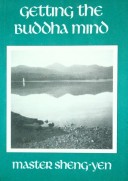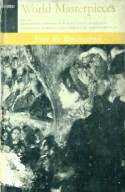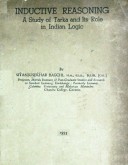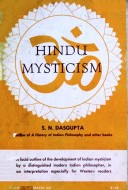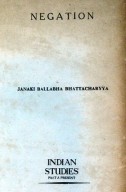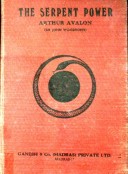Tìm Sách
Sách tiếng Anh-English >> Getting The Buddha Mind
Thông tin tra cứu
- Tên sách : Getting The Buddha Mind
- Tác giả : Master Sheng-yen
- Dịch giả :
- Ngôn ngữ : Anh
- Số trang : 147
- Nhà xuất bản : Dharma Drum Publications USA
- Năm xuất bản : 1982
- Phân loại : Sách tiếng Anh-English
- MCB : 1210000003693
- OPAC :
- Tóm tắt :
CONTENTS
Author’s Preface
Editor’s Introduction
Part One
Autobiography
The Ch’an Seven-Day Retreat
Four Conditions for Practicing Ch’an
Selflessness
Non-Opposition
Stages of Emptiness
Four Great Barriers
Kung-an Practice
The Experience of Wu
A Dream
On ‘Contemplating Mind’
On ‘Silent Illumination’
Part Two
Retreat Report by D.S.
Retreat Report by R.A.
Retreat Report by K.S.
Retreat Report by D.W.
Retreat Report by M.I.C.
Retreat Report by M.H.
Retreat Report by L.H.
Retreat Report by Bhiksu C.C.
Appendices
Station WBAI Interview
Glossary
Ch’an Retreat Daily Schedule
AUTHOR’S PREFACE
I arrived in America in the winter of 1975 to present the teaching and the experience of Ch’an Buddhism. Though I have written in both Chinese and Japanese I cannot express myself as well In English. In this respect, I may have failed to fulfill some expectations that people had of me.
Fortunately, among my American disciples and students, are several who have a good command of both English and Chinese. Thus, when I speak on Ch’an teaching and practice, my remarks are translated immediately Into English. On formal occasions, such as retreats, lectures, and seminars, these remarks are also taped. Many of these talks, after transcription, organization, and editing, are published in two of our publications, Ch’an Magazine, and Ch’an Newsletter. Many readers have expressed interest in and appreciation for these articles, thus providing the first causing-condition for publishing this book.
Ch’an is the supreme realization of the original nature of mind. It neither affirms nor negates any conceptual point of view, hence does not need language for its expression. On the other hand, one can exhaust the resources of language, and still not express the ultimate Ch’an. This is because Ch’an transcends knowledge, symbols, and all the apparatus of language.
You may call Ch’an “emptiness,” but it is not emptiness in the nihilistic sense, of “there’s nothing there.” You may call it “existence,” but It is not existence in the common sense, of “I see It, so It must be there.” It Is existence which transcends the fictions of our sense impressions of the world, of sight, sound, smell, taste, touch, and form. Yet this Ch’an is never apart from, is all of a piece with, our everyday world. It is indwelling in all beings, everywhere, at all times.
This Ch’an is none other than our original self, which has been hidden from view since time unremembered, by our egocentric delusions. In Ch’an Buddhism this self is called by various terms, such as the “pure mind of self-nature,” or “Buddha-nature.” It is the self which has been liberated from egocentrism. As such, it is coextensive with space and time, yet not limited by such concepts. It is pure wisdom; it is transcendent, absolute freedom.
The path by which this self is revealed and experienced is the path of Ch’an, and its methods of practice. Itself beyond description, Ch’an uses language as a bridge, until practitioners can themselves enter the door of Ch’an. This is the second causing- condition for this book.
Since being in America, I have spoken on many aspects of Ch’an practice, and many students have found these talks beneficial to their practice. Among these were talks in a special category, which some of my senior students felt should be collected into a book. These talks pertain to the practice of the seven-day Ch’an retreat, and in fact, were mainly given on such retreats over the past five years. The distinctive mark of these talks is that they are guides to practice, and have only incidental interest in theory or doctrine.
The goal of the Ch’an retreat is the furtherance of practice, and when the causes and conditions are ripe, the actual experience of Ch’an – of “seeing self-nature,” or “getting the Buddha-mind.” In one way or another, all the talks point in the direction of guiding and helping students along the path of liberation. The retreats are occasions for energetically practicing together; the talks, signposts along the way. I hope that their publication can bring some insight and help to the growing number of Americans who find benefit in the study and practice of Buddhism. This is the third and final causing-condition for this book.
The preparation of this book has been a collaboration by several people, over a span of time, beginning with on-the-spot translations, primarily by Ming-Yee Wang. Other translators include Bhiksu Kuo-Jen (Paul Kennedy), and Sramanerika Kuo-Hsien (Karen Swaine). Transcription, typing, and collection of the texts was done mostly by Sramanerlka Kuo-Hslen. Marina Heau proofread the manuscript. Nancy Makso coordinated the printing effort. Rick Halsted proofread the printer’s galleys. Organization and editing of the text was done by Ernest Heau, with the assistance of Sramanerika Kuo-Hsien, Harry Miller, and Dan Stevenson. Bringing the whole together as chief editor, Ernest Heau has dedicated the most energy of all. I hereby express my thanks to these individuals.
Ch’an Master Sheng-Yen
Ch’an Meditation Center
Elmhurst, New York
July 15, 1982
 Facebook
Facebook
 Google
Google
 Google+
Google+
